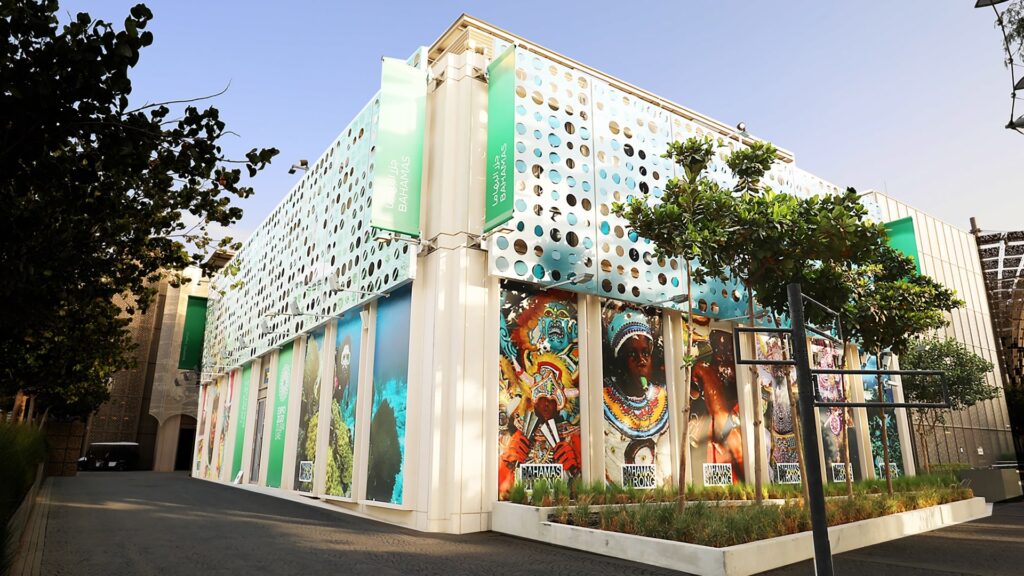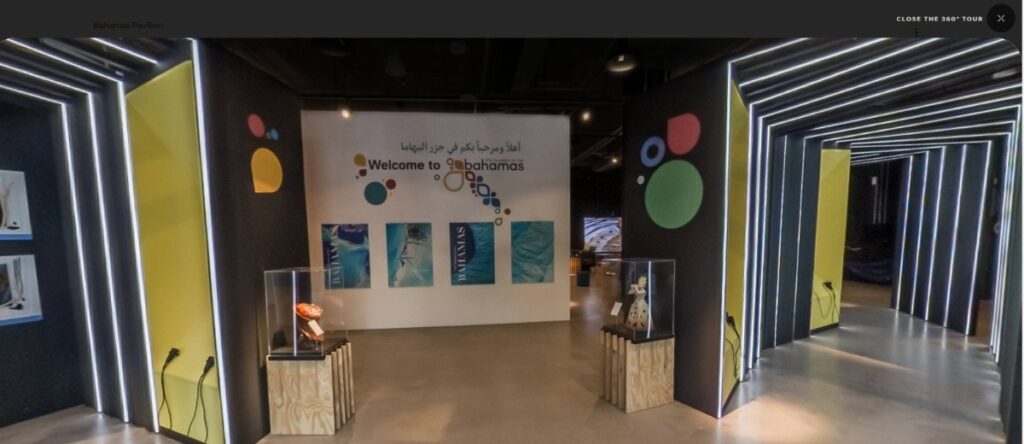THE BAHAMAS PAVILION AT EXPO 2020

On the 27th of November 2013 the United Arab Emirates was awarded the right to host Expo 2020 over a multitude of nations by the Bureau of International Exposition in Paris. The first World Expo, held at the Crystal Palace in London in 1851, gave a vivid glimpse of a world filled with science and technology. Over six million people attended this exhibition that unveiled the technological feat known as the telegraph. In the years that followed, landmark inventions were introduced, including the Ferris wheel (Chicago, 1893), electricity (St. Louis, 1904), the television (New York, 1939) and the mobile phone (Osaka, 1970). With the theme ‘Connecting Minds, Creating the Future’ and sub-themes ‘Opportunity’, ‘Mobility’, and ‘Sustainability’, Expo 2020 Dubai built on this history with an inclusive and global event. Due to the COVID-19 pandemic, Expo 2020 opened one year after originally scheduled and ran from October 1, 2021 to April 10, 2022. The Bahamas, the location of MAC’s 2023 conference, was included in the 192 participating countries.
Bahamas Pavillion

The Bahamas Pavilion was located in the Sustainability District. The main theme was to promote and focus on the resilience of a nation that consists of an archipelago of more than 700 islands spanning over 1000 square miles. Encompassing 7500 square feet across two stories, the rectangular structure featured images of the Junkanoo folklore dancers on the facade and was the largest Caribbean Pavilion at the Expo. The exhibits on the first floor were divided into three themes: ‘History of The Bahamas,’ ‘The Hurricane Belt,’ and ‘Industry and Innovation.’

Digital projections, documentary films, and digital interactive components were incorporated into the exhibition. The curatorial intent was to address issues of climate change and coastal cultures and the way visual artists are responding to it. Despite its natural beauty, the Bahamas (like many other Caribbean places) is fighting for a sustainable future. Hurricane Dorian was one of the strongest Atlantic hurricanes on record – and the strongest one on record to have ever hit the Bahamas. In September 2019, the hurricane caused tremendous flooding and mass destruction on the northwest island of Abaco and pummeled Grand Bahama for 48 hours straight before it finally moved away. The current death toll stands at 74 people, with 63 from Abaco and 22 from Grand Bahama, although hundreds are still missing. In addition to the deaths, 29,500 people were left without jobs and/or homeless. As the impacts of climate change continue to compound, extreme storms like this will grow in intensity and frequency – and they will particularly affect communities that are already living in vulnerable situations. The Bahamas needs ongoing long-term support to recover from this hurricane and build resilience to future storms.
Visitors were encouraged to discover the strength, creativity, and resilience of the Bahamians whose lives and livelihoods are increasingly endangered by climate change. Dynamic visual displays present the innovations and conservation leadership of the Bahamas, as well as ideas for the future, to visitors. Additionally, they learned about their storied history of weathering the storm and desire to build sustainable futures.
The exhibition ended with a large screen that displayed a Junkanoo “rush out.” The highlight of the exhibition, visitors could dance and experience the sounds and wonder of Junkanoo.
Expo 2020 was visited by more than 17 million people. The Embassy for Business was located on the second floor, where investors met to discuss investment opportunities in the Bahamas. The Bahamas’ participation in Expo will have long-term benefits for the country, including trade opportunities, long-term partnerships, and new investment opportunities.
